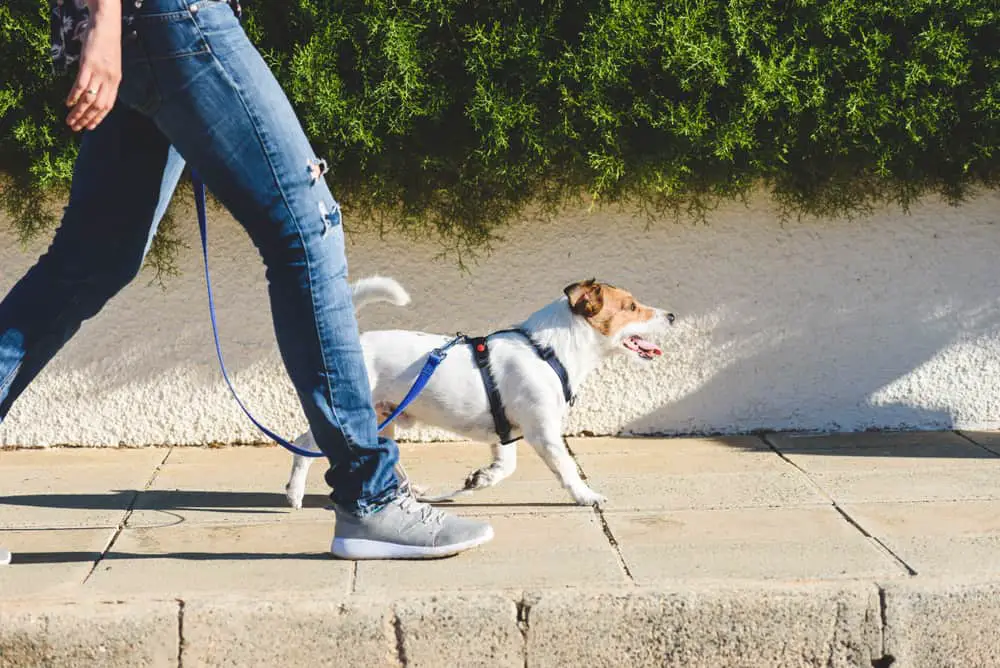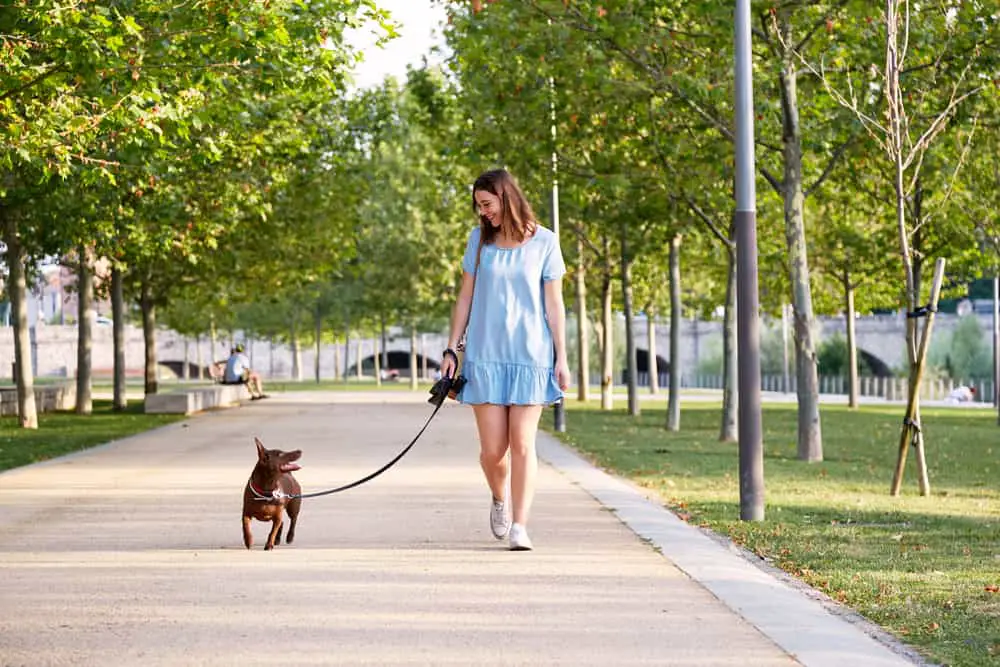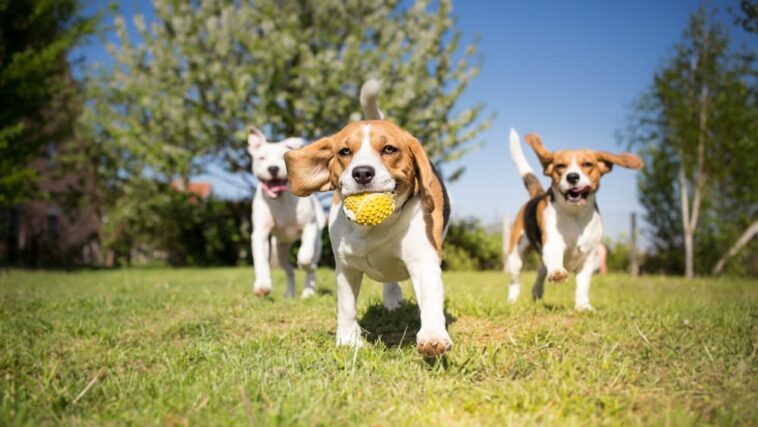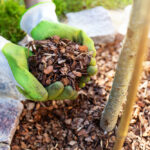Getting your first puppy brings excitement that is unmatched by anything else. They’re usually balls of energy and too adorable to keep indoors all to yourself. This results in you eagerly awaiting the day you can bring your puppy into the world to play with the other puppies at the dog park and show them off to your friends.
Unfortunately, as much as you want to take your puppy out for walks or to the local dog park, you can’t immediately take your puppy out to socialize immediately. You have to wait a while before your puppy can be safely let out. But when exactly is that? When can you take puppies outside?
This article explains at what age it is safe to take puppies outside, why you should wait until that age, and what you can do with your puppy to ensure that they remain healthy and use up all of their energy.
When Can You Take Puppies Outside?
It often depends on the circumstances, but the usual time to wait is until your puppy is 10 to 12 weeks old. There are several reasons for this.
To start, your puppy, just like babies, must get their vaccinations. Puppies typically go through several rounds of vaccinations at intervals within the first few weeks of their life, but they receive the majority of the crucial puppy shots at 10 to 12 weeks, which include vaccines for distemper, adenovirus (hepatitis), parainfluenza, and parvovirus.
After these rounds of puppy shots, their immune system is usually considered strong enough to handle anything your puppy may face outside. This is especially important at that age because puppies are prone to excitement and discovery, leading to them running up to other dogs more often and increasing their risk of catching something.
This time frame also gives you enough time to start initial training with your puppy at home. This way, your puppy may be less intimidated when taken outside to socialize.
That said, it’s also important not to isolate your puppy for too long, or it may also negatively affect their development. Let’s take a look at why that is.

Why It’s Important to Take Puppies Outside
“When can you take puppies outside?” shouldn’t be the only question you ask yourself. You should also ask, “When do you HAVE TO take puppies outside?”
Most of a puppy’s social and learning development occurs very young, including throughout the vaccine schedule. This key socialization age is usually anywhere from 3 to 12 weeks, while your puppy isn’t fully vaccinated until two weeks after their last vaccine, which can be anywhere from 18 to 22 weeks.
If your puppy doesn’t get the opportunity to socialize while they’re still young, there’s a chance that they may end up with behavioral disorders or issues. This will affect not only how your dog interacts with other dogs but also how your dog interacts with humans.
That’s not to say that every dog that begins socializing later in life will react negatively to other humans, but it does help when they are exposed to other humans early on, especially if they are a naturally protective breed such as a German Shepherd.
So the lesson from this is to avoid bringing your puppy out to socialize too early and not isolate them for too long. It’s a fine line, but if you pay close attention to your puppy’s behavior and growth, you should be able to find a sweet medium!
Now that you know the importance of taking puppies outside at the right time, we can discuss how to ensure your puppy safely socializes.

Tips on How to Safely Socialize Your Puppy
Socializing your puppy takes some strategy and planning. As mentioned, you don’t want to start doing it too early and put them at risk of getting infected or being hurt by other dogs, but you also don’t want to start too late and create major behavioral issues for your puppy.
To help you out, here are some tips on socializing your puppy:
- If you have a backyard with a fence, you may be able to let your puppy roam free before they are fully vaccinated. Just monitor them closely, including checking for behavior such as digging or eating odd things. You should also try to potty train them in your yard.
- If you take your puppy outside for a walk before they are fully vaccinated, carry them in your hands. If you must put them down, don’t put them down in places with dog feces or urination.
- Until they are fully vaccinated, only allow your puppy to play with dogs you are familiar with, i.e., dogs whose vaccination status and health are known to you. Do not allow your puppy to play with strange dogs.
- Opt to have your puppy join a puppy class. Often puppies are allowed in these classes after they receive their first vaccines.
Once your puppy has at least all of their core vaccines, it might be a good time to bring them to the dog park to meet other dogs.
Here’s a pro tip: Many animal diseases, with the exception of rabies, cannot be transmitted from one animal to another. So you don’t have to worry about your dog potentially getting sick from animals in your backyard or even from your other pets. However, it’s still a good idea to ensure that all pets in your home are up-to-date with their vaccines.
The Takeaway: Do What Feels Best for Your Puppy
Socializing puppies is a bit of a catch-22. They shouldn’t be brought outside until fully vaccinated but should also be socialized as early as possible. This dilemma makes it difficult to figure out the best time to introduce your puppy to the world.
At the end of the day, while there are several different guidelines that you should follow when it comes to raising a puppy, you know your puppy the best. That’s why it’s crucial that you do what is best for your little bud to ensure their health and happiness.
Hopefully, this article has guided you on safely socializing your puppy to ensure they are at their healthiest and happiest. For the most accurate information, it’s a good idea to look up your specific puppy breed to understand their behavior and anticipate how they might react to socialization at every age.






